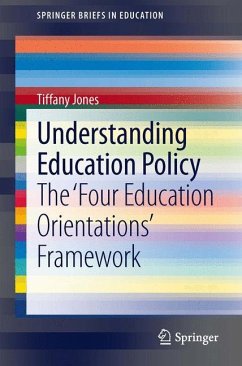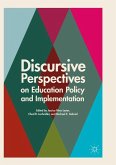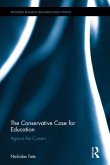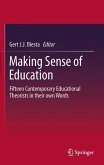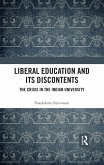Analysis of education policy often follows a particular orientation, such as conservative or neo-liberal. Yet, readers are often left to wonder the true meaning and conceptual framing behind these orientations. Without this knowledge, the policy analysis lacks true rigor, its value is diminished as the results may prove difficult to reproduce.
Understanding Education Policy provides an overarching framework of four key orientations that lie beneath much policy analysis, yet are rarely used with accuracy: conservative, liberal, critical and post-modern. It details each orientation's application to policy making, implementation and overall impact. The book also argues the value of analysing a policy's orientation to improve the clarity of its analysis and allow broader trends across the education policy field to emerge.
The book offers practical examples, key vocabulary and reflection activities which give equitable, yet critical consideration to all education orientations. This allows readers to see the benefits and disadvantages of each perspective and discover their own biases.
This introduction to education policy analysis offers theoretically broad, highly practical coverage. It is adaptable to many kinds of policy analysis areas and will appeal to a wide range of readers with an interest in education policy, from students conducting specific research to policy makers looking for a deeper way to re-think their work.
Understanding Education Policy provides an overarching framework of four key orientations that lie beneath much policy analysis, yet are rarely used with accuracy: conservative, liberal, critical and post-modern. It details each orientation's application to policy making, implementation and overall impact. The book also argues the value of analysing a policy's orientation to improve the clarity of its analysis and allow broader trends across the education policy field to emerge.
The book offers practical examples, key vocabulary and reflection activities which give equitable, yet critical consideration to all education orientations. This allows readers to see the benefits and disadvantages of each perspective and discover their own biases.
This introduction to education policy analysis offers theoretically broad, highly practical coverage. It is adaptable to many kinds of policy analysis areas and will appeal to a wide range of readers with an interest in education policy, from students conducting specific research to policy makers looking for a deeper way to re-think their work.
Professor Jones reminds us that the term "educational policy" is typically used as if it were definitive when it really is not. She then moves on to provide definition and taxonomy that has a solid and very useful theoretical grounding for sorting and analyzing various policy initiatives. Professor Daniel W. Lang, University of Toronto, Toronto, Ontario, Canada

